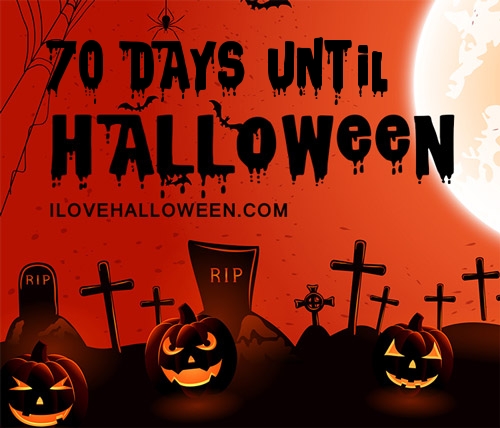Starring: Nicholas Cage, Ron Perlman, Claire Foy, Ulrich Thomsen, Robert Sheehan, Stephen Campbell Moore, and Stephen Graham
Director: Dominic Sena
Rating: Six of Ten Stars
A pair of 14th century Crusader knights (Cage and Perlman) return to their homeland to find it ravaged by a terrible plague. They join a priest (Moore) and three other swordsmen (Graham, Sheehan, and Thomsen) on a dangerous mission to escort a mysterious girl (Foy) who is suspected of being the witch who has caused the plague to a remote monastery where her soul will be cleansed.
"Season of Witch" is a fast-moving fantasy/horror film that mixes movie cliches--can there be a horror film set in the Middle Ages that doesn't feature some plague or another?--and refreshing approaches to standard fantasy/horror/action movie types--such as the knights played by Cage and Perlman who have grown disillusioned with earthly religious institutions but who still don't go on long, never-ending screeds about God not existing--with a degree deftness that a fairly standard story and characters have enough of an air of freshness about them that you won't regret the time or the money spent on watching this movie.
The audience for this film are big fans of D&D-style low-fantasy adventures, as the horror here is more R.E. Howard than H.P. Lovecraft, and the heroes' relationship with God and religion is more Solomon Kane than Joan of Arc. It's a straight-forward adventure populated with situations and characters that will either bring feelings of nostalgia or satisfaction to DMs and players who will feel like the scenery in their mind's eye while playing paper-based RPGs has come to life on the screen before them. This movie is what a D&D movie should be like, with its ass-kicking heroes, sinister witches, zombies, and uber-powerful demons.
Unfortunately, the film shares a bit of the haphazard plotting that is typical of even the best conceived roleplaying game adventures, be they "homebrews" or published scenarios. Much of what happens in the film seems to happen just because it's a plot necessity, especially once the characters reach their destination. I can't go into it too much without spoiling the movie, but you will find yourself wondering why the heroes even made it inside the monastery walls as the film barrels toward its CG monster-filled climax. The red herrings presented--is the girl a witch or not?; is the priest a bad guy rapist/satanist or not?--are clumsily implemented and there is never any real doubt on the part of the viewer what the truth is. And then there's the unfortunately, unintentionally comedic named location of "City of Villach."All in all, the script is fairly weak, succeeding in large part because it is constantly moving the film forward to the next creepy scene or the next fight, and because the filmmakers were smart and confident enough in their abilities to stay off the soap-box and show us the brutality and corruption that can arise from religious fanaticism instead of telling us. (Although the friend I saw the film with though less of it than I did, she being troubled by the fact that the only women in the film were demon-possessed witches who were just there to be dispatched.)
The other keys to what makes this film fun to watch is the peformances by Nicholas Cage, Ron Perlman, and Claire Foy. None are particularly deep characters, but Cage and Perlman play well off each other, and they are perfectly believable as life-long friends and honorable knights. Meanwhile, Foy can project wide-eyed innocence and demonic menace with equal force.
Fans of the films stars and of low-fantasy (or the even lower D&D-style fantasy) will enjoy "Season of the Witch". Admirers of the Tolkien and Lewis screen adaptations might want to skip it.




















You are first blogger of the many blogs that I follow to review Season of the Witch, Steve. Based on the “professional” critics’ reviews of the film, you’d think this was the worst piece of crap to be expelled from the bowels of Hollywood since Beastmaster! I like the cast, the look of the film, the monsters and I even liked the director Dominic Sena’s previous film Whiteout. Yet, that wasn’t enough to get my lazy ass to the theater and actually see it. I am a fan of classic fantasy literature and not a fan D&D, so most fantasy films that are not literary based usually fall into the latter category. Still, even those can be fun.
ReplyDeleteFrom your description of Season of the Witch, it appears to be a medieval fantasy, mixing history with fantasy. Twice you compare it with the works of Robert E. Howard: “the horror here is more R.E. Howard than H.P. Lovecraft, and the heroes' relationship with God and religion is more Solomon Kane than Joan of Arc”. You also mention prior to that that “The audience for this film are big fans of D&D-style low-fantasy adventures”. As a fan of Howard’s fiction and not the terrible film adaptations of his work, I would take exception of describing his prose as “low-fantasy”. I understand that the term High-Fantasy is meant to describe fiction set in an alternative, entirely fictional ("secondary") world, whereas Low-Fantasy is meant to describe fiction being set in the primary, or "real" world, or a rational and familiar fictional world, with the inclusion of magical elements. So you are accurate in calling Season of the Witch low-fantasy, but at least partially inaccurate in comparing it to Howard’s prose. Howard’s Conan and Kull stories are indeed High-Fantasy in its strictest definition, but I would be willing to tag Howard’s Soloman Kane stories as Low-Fantasy. Either way, I like both types and would not use those terms to denigrate a film. I just wish you hadn’t concluded your review with “Fans of the film’s stars and of low-fantasy (or the even lower D&D-style fantasy) will enjoy "Season of the Witch". Admirers of the Tolkien and Lewis screen adaptations might want to skip it”, because it implies that Low-Fantasy by its very definition is poorer quality fiction, when in fact there is much poorly written fantasy in both the High and Low Fantasy genres.
Still, I really appreciate your review of Season of the Witch, because it points out its positive aspects (the cast) and its negative aspects (plot clichés). Too many bloggers just hate on a film they don’t like and don’t even attempt to find something positive to say about it. Your fair review gives me hope that I’ll enjoy it when I watch it on blu-ray later in the year.
Actually, I trying to be witty rather than imply that "low fantasy" is lower quality than "high fantasy." Obviously, I failed... in the same way that some years ago prompted Gary Gygax to give me a lecture when I met him at Gen Con. :)
ReplyDeleteHigh and low fantasy are critical categories, not definitions of quality, as you correctly pointed out. And I wasn't trying to denigrate the film, but trying to describe it. I was also trying to describe the tone of the film, which seems far more Howard than Tolkien to me.
And ti me, that's a positive. I vastly prefer Howard over Tolkien. The only reason I got around to reading all of "Lord of the Rings" is because I was paid to when I worked on the roleplaying game licensed from the movies. Frankly, I always struggle a bit when it comes to talking about fantasy, because it is not a genre that I am terribly well-versed in as most of what I've read I haven't cared much for.
BTW, I probably shouldn't admit that I have really fond memories of "Beastmaster." I haven't seen it since I was a kid, but can a movie from the guy who made the "Phantasm" films really be all that bad?
ReplyDeleteI’m sorry I didn’t get your low fantasy and Low Fantasy joke, Steve. Subtle humor sometimes is tough to get across in the written word; especially when you’re dealing with fans of a specific artist or genre. I guess I’ve spent too many years defending Howard’s “pulp” writing style, which the literary fantasy fans tend to look down on. I find it fascinating that someone who is a fan of Tolkien’s Lord of the Rings can look down on Howard’s Conan the Cimmerian stories. They are both essentially Sword and Sorcery stories; the only real difference being the heroes of the stories. Howard glorified the strong simple barbarian, while Tolkien extoled the virtuous little everyman. I like both stories myself; although I prefer Howard’s sleeker prose style over Tolkien’s more florid style.
ReplyDeleteAs you may be able to tell, I have read the majority of the classic Fantasy literature. Some of my favorites are Fritz Leiber’s Fafhrd and Gray Mouser stories, Michael Moorcock’s Elric novels and Karl Edward Wagner’s Kane novels. Most modern Fantasy novels are variations of Tolkien, with some of the pulpier elements of Sword and Sorcery thrown in. Most films that are “original” Fantasy stories borrow liberally from everything but Fantasy literature. Then again, screenwriters and filmmakers in general, don’t seem to be very well read in any genre. So, you are probably most accurate in comparing Season of the Witch to Dungeons and Dragons, which may be the only fantasy that screenwriter Bragi F. Schut is familiar with.
I can understand Beastmaster as a “guilty pleasure”, but I saw this at the theater at the age of 22 and was not at quite the impressionable age that you were. Marc Singer looks silly with those long flowing locks, but I will admit that Tanya Roberts looks fine in that animal-skin bikini (though she is a terrible actress). Sorry, but I never understood the appeal of Phantasm, so maybe that explains my tepid feelings on Beastmaster as well.
Keep holding the pulp torch high, Steve!
It was a very little joke, in a post that was whipped out in 15-20 minutes, so it wasn't well made. No need to apologize for anything. :)
ReplyDeleteI have more to say on this topic, but I have to run, so I'll follow up later.